Most people experience stress periodically. Rush-hour traffic, work deadlines, difficult relationships, and financial matters can be stressful. Even good things like getting married, starting a new job, or getting ready to go on vacation can be stressful.
In moderate doses, stress helps you adapt and perform at your best. But if stress becomes excessive and constant, it can erode both your physical and mental health.
Frequent high levels of stress have been linked to depression, high blood pressure, headaches, and poor sleep. Stress can increase your risk for illness and heart attacks. And it can even lead to poor health behaviors such as smoking, overeating, drinking, drug use, and skipping meals.
You can’t eliminate stress entirely. But you can learn effective coping skills to prevent stress from harming your health.
Check out these 5 ways to reduce stress:
Learn to relax. Relaxation can break the stress cycle and help restore stress hormones and emotions back to normal. Try deep breathing, meditation, yoga, walking, or another form of exercise.
Enlist social support. People who cope well with life generally have someone to talk to when stressful things happen. Spend time with friends or join a support group that deals with your specific life problem.
Learn to problem-solve. Identify what is bothering you. Explore possible solutions. Choose a workable solution and put it into effect. As you take action, you will feel better. Use stress to help you make positive changes in your life.
Learn to say “no” when you need to. Delegate and get help from family members and coworkers when needed. Set priorities and clear boundaries.
Stay within a budget. Overspending, debt, and quarrels about money are common stressors. Careful budget planning and living within your means can reduce stress.
If you still feel like you’re stressed out all the time, you may need professional help from a counselor or therapist. By developing effective coping skills, you will likely live a longer, healthier life. And you will feel more relaxed and happy too.
Sources:
American Academy of Physicians.
Archives of Internal Medicine.
National Institute of Mental Health.








